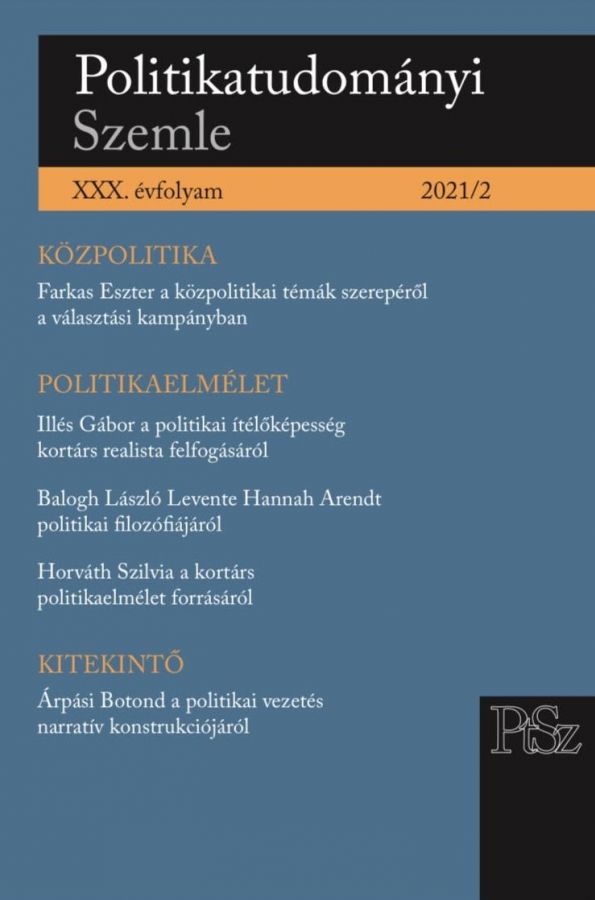Hannah Arendt Platónról és a politikai filozófia hagyományáról
Hannah Arendt on Plato and on the Tradition of Political Philosophy
Author(s): László Levente BaloghSubject(s): Philosophical Traditions, Ancient Philosphy
Published by: MTA Politikai Tudományi Intézete
Keywords: Hannah Arendt; Plato; tradition; politics and philosophy; truth and opinion
Summary/Abstract: The post-World War II decline of liberal democracies and the rise of totalitarian regimes required the introduction of new methods based on new concepts in order to reappraise the „essence” of politics. The new phenomena could not be fully grasped and described by the categories and concepts of the old tradition, but that did not mean that scholars should or could have given up the investigation of that tradition. One of the most remarkable and effective tendencies of the several conceptual and theoretical reconsiderations of politics was the one stemming from contemporary German emigrants. Their thoughts were basically determined by the fact that totalitarian regimes were partially regarded as the outcome of modern political philosophy, they decided therefore to hark back to the roots of ancient political thought. Hanna Arendt is described as a neo-Aristotelian political thinker, although Plato’s role in her philosophy was as prominent as of Aristotle’s. According to Arendt, the origin of those phenomena that placed philosophy against the polis and politics, and made hostility between them, can be discovered in Plato’s philosophical thoughts.
Journal: Politikatudományi Szemle
- Issue Year: XXX/2021
- Issue No: 2
- Page Range: 47-64
- Page Count: 18
- Language: Hungarian

